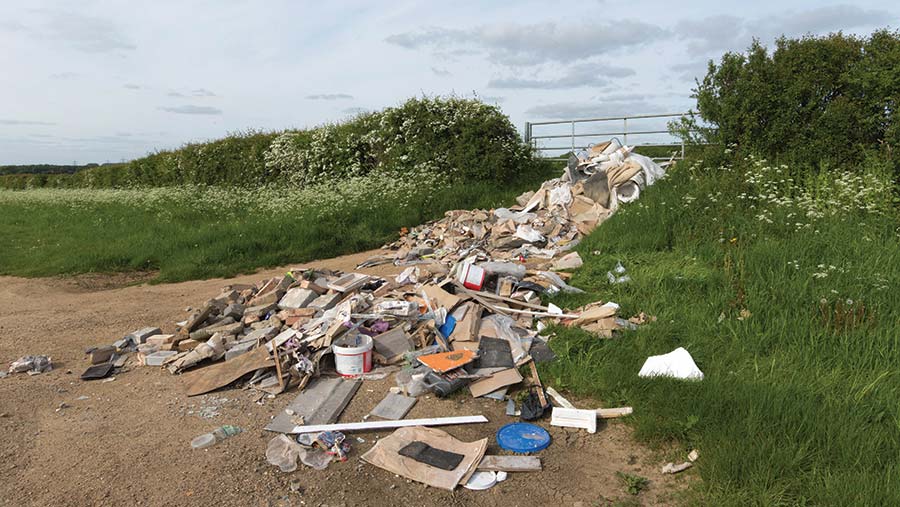Government announces new crackdown on fly-tipping epidemic
 © Tim Scrivener
© Tim Scrivener The government has announced a raft of new measures aimed at tackling Britain’s £400m-a-year fly-tipping epidemic.
Local authorities will receive £450,000 worth of grant funding to clamp down on fly-tipping incidents, including the use of covert and overt CCTV cameras at hot-spot locations.
Ten councils in England will be awarded the grant money to implement fly-tipping projects and make it easier to prosecute offenders.
See also: What to do if you’re a victim of… fly-tipping
The councils are: Basingstoke and Deane, Buckinghamshire, Dover, Durham, Eastleigh Borough, Newham, Stevenage, Telford and Wrekin, Thanet and Winchester.
Funding for Durham Council for CCTV will lead to individuals issued with an on-the-spot fine for fly-tipping being directed to its self-funded digital educational tool.
Artificial intelligence equipment and automatic number plate recognition cameras will be used to identify offenders and provide alerts to any visible left items at fly-tipping hotspots in real-time.
Fees may be waived
Around one-third of local authorities still charge up to £10 an item for certain types of DIY waste, such as plasterboard, bricks, rubble and paving slabs, using rules designed for construction waste.
Ministers have outlined changes to the rules in a technical consultation, which could see fees for disposing of certain items of DIY waste scrapped at council recycling centres in England. The proposed changes could be brought into legislation.
Defra said the number of fly-tipping cases has risen significantly since the start of the pandemic, costing local authorities up to £392m a year. But under the current rules, farmers and landowners are responsible for clearing any fly-tipped waste on their land.
Local authorities dealt with 1.13 million fly-tipping incidents last year, up by 16% from the previous year. According to the Country Land and Business Association, fly-tipping affects two-thirds of farmers, with estimated clean-up costs in excess of £50m each year.
‘Appalling incidents’
Environment minister Jo Churchill said: “These appalling incidents cost us £392m a year and it is time to put a stop to them.
“I want to make sure that recycling and the correct disposal of rubbish is free, accessible and easy for householders. No one should be tempted to fly-tip or turn to waste criminals and rogue operators.”
The new plans build on extra funding given to the Environment Agency to tackle waste crime, as well as new powers to stop illegal waste sites posing a risk to the environment, including the ability to lock up sites and force rogue operators to clean up all their waste.
The Countryside Alliance (CA) welcomed the new measures, but said the government must do more to clamp down on rogue traders who pose as legitimate waste businesses and then fly-tip householders’ waste in the countryside.
“Not only is this a blight on the landscape, but it is harmful to wildlife and the environment,” said Sarah Lee, CA director of policy. “Householders must be aware of their responsibilities and liabilities when paying a third party to dispose of their waste.”
